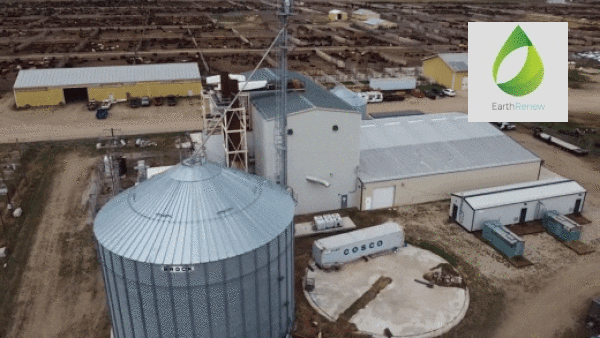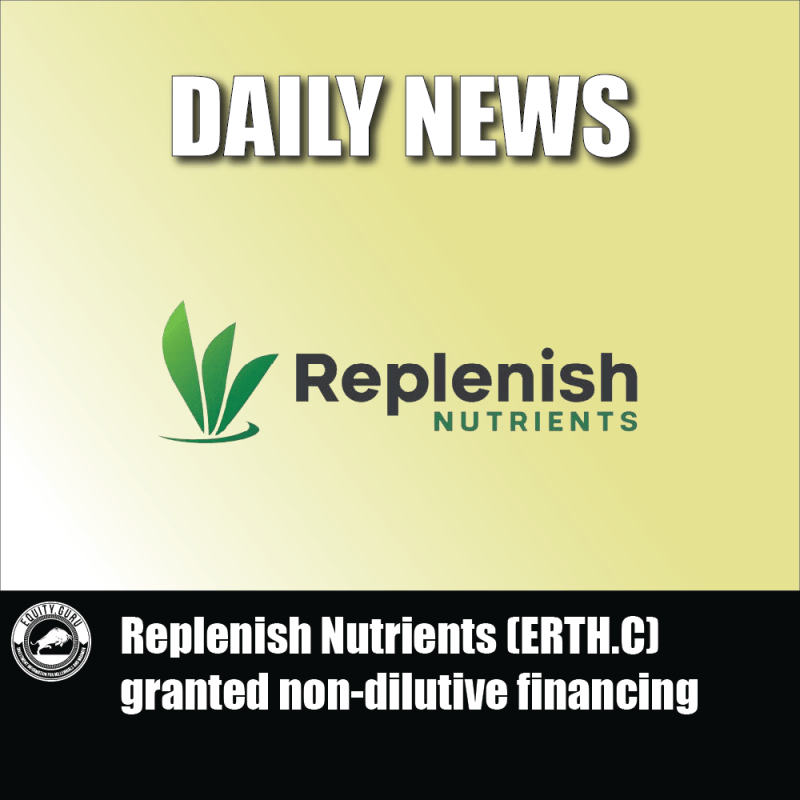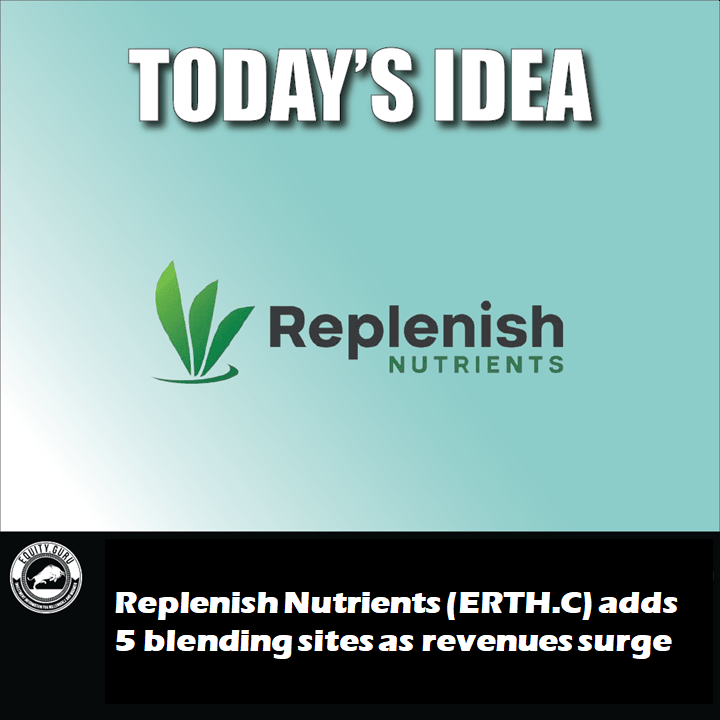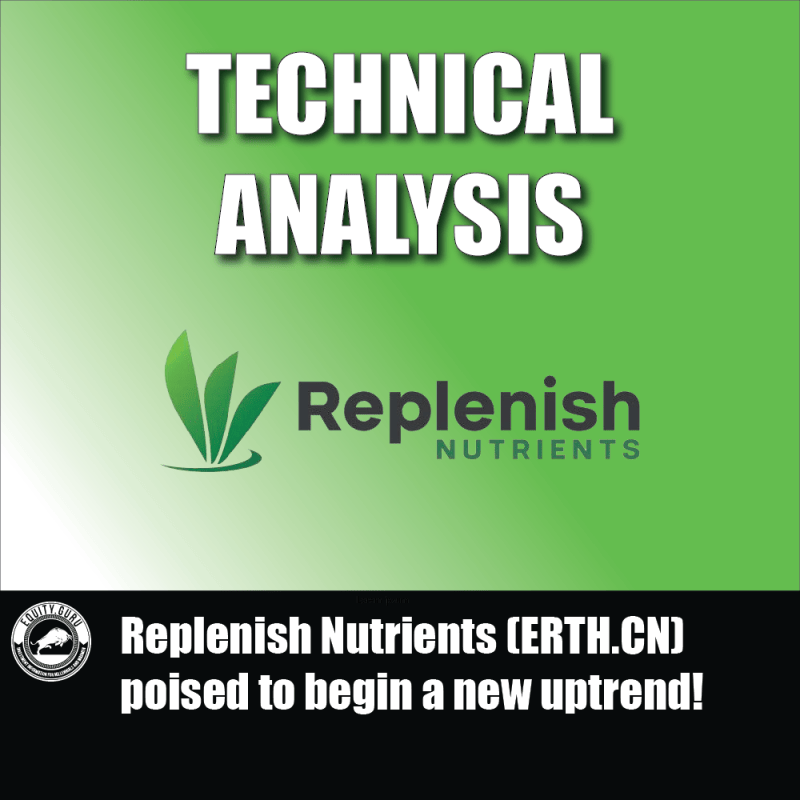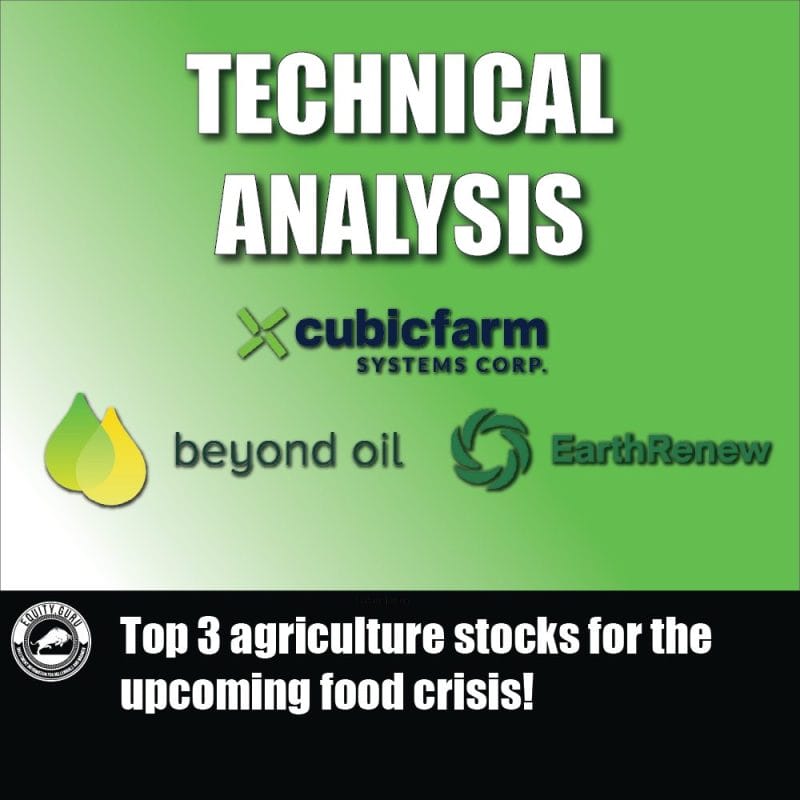On August 26, 2020 Earthrenew (ERTH.C) announced results from its germination trial with Lethbridge College.
Earthrenew is a technology company that transforms livestock waste into a high-performance organic fertilizer for the North American market.
The field trial started four months ago, was completed at the end of June 2020.
The study “focused on a set of field trials for Earthrenew fertilizer, designed to validate historical results on yield and soil health, and provide data on new blends and formulations appropriate for commercialization.”
Earthrenew paid Lethbridge a matching contribution of $9,841 to cover “direct equipment and field costs.”
“Having access to well-known applied research institutions with a focus on agriculture is a huge advantage to Earthrenew as we collect academic data on the efficacy of our organic fertilizers,” stated Earthrenew CEO Keith Driver at the time.
Here’s the skinny on the August 26, 2020 announcement:
During the germination phase, the first 7-10 days of growth, the different fertilizer formulations showed a 169-207% improvement over the control in plant growth for barley and 10-49% improvement over the control in plant growth for peas.
Over the entire trial, both the 25% frass formulation and the 50% frass formulation showed a 72% improvement over the control in plant growth for barley.
The 4% biochar formulation showed a 40% improvement over the control in plant growth for peas.
The demand-drivers for ERTH’s products are there: due to the encroachment of suburbs, arable land is being lost at the rate of over 38,000 square miles per year.
Land devoted to organic farming however is increasing. “The U.S. organic sector posted a banner year in 2019, with organic sales in the food and non-food markets totaling a record $55.1 billion, up 5% from the previous year”.
The Earthrenew/Lethbridge partnership is part of a growing research trend.
“In the last decade, there has been an explosion in the number of research deals between companies and universities,” reports the Harvard Business Review, “Companies, which have been reducing their spending on early stage research for three decades, have been increasingly turning to universities to perform that role, seeking access to the best scientific and engineering minds in specific domains.”
Instead of just monitoring early stage research at universities and pouncing when something of interest happens to emerge, smart companies increasingly seed it in areas of interest to them.
“The distinction between commercial development and early stage research has traditionally been seen as a defining difference between the values of corporate culture and university culture,” continues the HBR, “In recent years, however, both sides have moved closer together, meeting somewhere in the middle as their missions have evolved.”
The field study involved five Earthrenew formulations: two existing formulations and three novel formulations, with peas and barley. The formulations were composed of Earthrenew heat-treated manure, biochar and insect frass.
Testing parameters:
- germination index
- germination rate index
- vigor index
- final germination percentage
- plant weight (fresh and dry
- plant leaf count
- plant stem length
The five formulations showed a significant improvement for all parameters for both crops tested. These early results indicate that there was a positive effect for all five formulations on both crop species over the control group.
The two crops responded differently to the fertilizers during growth and development.
The novel formulations with heat treated manure, biochar and frass produced the best results for barley, whereas the historic formulations with heat-treated manure and biochar produced the best results for peas.
“The initial study results indicate that Earthrenew’s organic fertilizer formulations can help different crops grow faster and stronger,” stated Dave McMurray, Manager, Applied Research at Lethbridge.
Mr. McMurray added, “Based on the initial results we would like to continue working with Earthrenew to produce a scientific publication on these field trials.”
“The early results of our germination trial confirmed our expectation that various formulations will have a positive effect on different crop species,” stated Driver.
“The data are expected to help us to refine our product offerings as we move towards restarting production,” continued Driver, “We intend to use the results to demonstrate the value add of Earthrenew fertilizer to our customers this Fall as they look to make purchase decisions for next year’s planting.”
Located on a 25,000 head cattle feedlot, ERTH’s flagship Strathmore plant in Alberta is capable of producing up to four megawatts (MW) per hour of low-cost electricity powered by a natural gas fired turbine.
January, 2020 electrical sales from the Strathmore plant were $117,000.
The exhausted heat from the turbine is used to convert manure into certified organic fertilizer.
ERTH recently published preliminary results of a feasibility study involving one of the largest feedlots in the southwestern U.S. which could provide ERTH with a strategic operational location in “one of the world’s largest organic farming markets”.
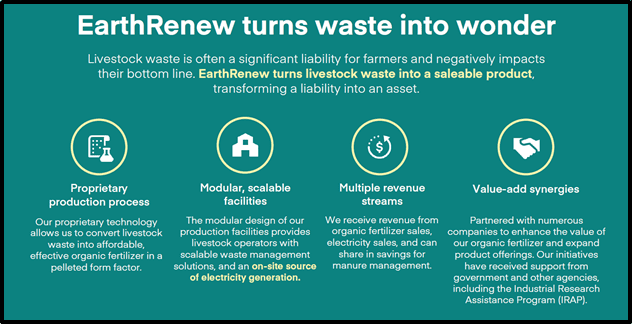
On Wednesday, September 2nd, 2020 at 8 a.m. Vancouver time, Mr. Driver will be going through the Company’s September 2020 Investor Presentation and answering questions.
Date: Wednesday, September 2, 2020
Time: 11:00am ET (8:00am PT)
Register Here: https://attendee.gotowebinar.com/register/5264331240984481291
Investor Presentation: www.EarthRenew.ca (Investor Tab) or https://bit.ly/2Ez9W1s
– Lukas Kane
Full Disclosure: Earthrenew is an Equity Guru marketing client

